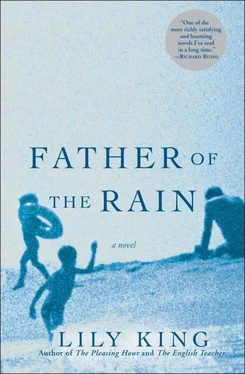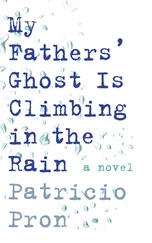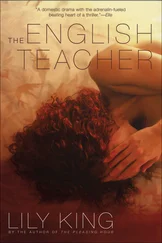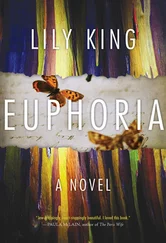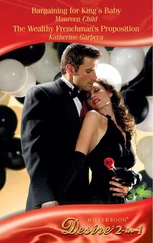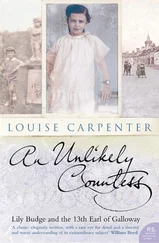“You’re a little whippersnapper, aren’t you?” he says. “You and your professorship. But I’m not as dumb as I look, you know.” He gets double fives and knocks off two of my men. “I was pretty good at school once upon a time.”
“Were you?”
“Don’t sound so surprised.”
“I’m not. I know you’re smart. Maybe not really smart in back-gammon.” I come in on a four and a three, and bump off two of his men.
“You know what I loved in school?” he says.
“What?”
“Shakespeare.”
“Shakespeare?”
“We had to memorize something from Julius Caesar once.”
“A soliloquy?”
“I think so.” It’s his turn, but he doesn’t roll. “ O conspiracy, sham’st thou to show thy dangerous brow by night, when evils are most free? ” His neck lengthens as he speaks, reddens, the Adam’s apple sharp as ever, cutting its pale path. “ O, then by day where wilt thou find a cavern dark enough to mask thy monstrous visage? ”
“Wow, Dad. Good memory.”
He looks at me like he used to look at Catherine sometimes, a defiant go fuck yourself look. And then he takes a long sip of his martini and the blush drains out of his face.
The next game he beats me. He gets up and makes another drink. He beats me again. He drinks faster when he is winning.
“I used to play this with my mother,” he says.
I wait for more. It’s rare for him to talk about his childhood.
“She used to send me to the kitchen to fetch the maid and she’d change the board around. She was a terrible cheater.”
She was a terrible drunk, my mother told me.
“I’d say, ‘Ring the bell for the maid.’ There was a button under the carpet beside her chair, and all she had to do was step on it and it would ring in the kitchen. But she’d say ‘The maid’s going deaf.’ There was no contradicting my mother. I learned that early enough.”
“How? What would she do?”
“She’d put clothespins on my ears.”
“What?”
“She’d put clothespins on my ears and I’d have to walk to school like that.”
“Dad, c’mon.”
“They hurt like hell, too.”
“Oh my God, that’s so twisted.”
He laughed at the word. “She was twisted all right.”
“Have you ever lived alone before?”
“Let’s see. I had a single my senior year of college.”
“And you ate in the dining hall?”
“I ate at my club.”
“And your laundry was done for you?”
“Every Monday morning.”
“Before I leave, I’m going to show you how to wash your own clothes and make a few meals.”
“I know how to make steak and hot dogs. That’s all I need to know.”
“There’s nothing you want to learn to cook?”
He thinks about it. “Hollandaise sauce. Catherine’s was awful.”
He wants my mother’s recipe. He’s saying he misses my mother’s hollandaise. Even now, I thrill when I find a chink of light in the great wall between them.
When he comes back into the room with another drink, he says, “This is nice.”
“What?”
“Playing backgammon.”
“It is nice.”
“I wish you could stay longer.”
These are words I’ve never heard from him, simple words. This is nice. I wish you could stay longer .
“Me too.” It feels true and then, after a few seconds, completely untrue. Two nights is all I can handle. And I know what he’s doing, how he can put on the charm when he needs something from you.
I beat him the last game, backgammon him, and he laughs as I do it.
“You’re a good player,” he says, packing up the case.
Afterward I drag him up to the laundry room. It looks just the same, the ivory-colored machines, the hampers, the cabinet with the safe inside.
I explain the separation of lights, colors, and darks. There are enough of his tennis whites in there to make a small load, so I toss them in, measure out the powder detergent, read out the cleaning options, and pull the knob. Water rushes in and I shut the lid. We move to the dryer and I show him the dials. I scrape the lint tray clean. He says Mm-hmm and Okay at all the right times, but he isn’t paying attention. He’s behaving as if it’s all hypothetical, like I’m preparing him for an emergency situation that will not actually come to pass.
He points to the old hair dryer standing on its wheels in the corner, a gunmetal-gray helmet my mother used to spend hours under, deaf to the world. I go over and touch the thick metal lip. I can see her foot bobbing, hear the pages of Time magazine snapping. I feel my ache for her grow and then freeze — I can’t miss my mother in front of my father. But she once stood here; we’d all once been a family in this house. It’s like a story, a fairy tale, something told to me, not remembered. Once upon a time a beautiful lady lived with a handsome man in a big house near the sea. They had two lovely children, a boy and a girl. But the beautiful lady was not happy, and one day she took the little girl and all the jewelry and disappeared.
Since there is no space for groceries in my car, I take my father’s to the market. Going down the hill into town, I get behind a Volvo whose bumper declares they’d rather be windsurfing. A Saab at the fish market says it would rather be skiing. I laugh as if Jonathan were beside me and had made a joke. Yeah, he’d say, where I grew up we put stickers on our asses that said I’D RATHER BE DRIVING A CAR. At the sight of my father’s beige sedan, hands rise from steering wheels to wave and then surprised eyes peer in. They do not know me, but I know them: Mrs. Utley, chain-smoking in a green station wagon; Mrs. Braeburn, pursing her stiff lips in a navy Jeep; small Mrs. Wentworth leaning forward in a van, only her forehead visible; Mr. Timmons, who inexplicably retired in his early forties, parking his powder blue convertible outside the post office with the concentration of a leader of a small military operation.
After my mother died, I came to Ashing seldom and briefly. Two nights a year with my father and Catherine was enough. On the way, I’d think of all the people I wanted to see, old friends who might by chance be back visiting at the same time, friends of my mother’s who’d written kind letters to me after she died. I’d plan to go to all the shops, poke my head in at the Mug and the penny candy store. I wanted to visit people because I missed them and because I knew it would be healthy to break up the intensity of seeing my father. But my father’s house was not one you could flit in and out of. It sucked you in until it spat you out. It was seductively familiar, my father greeting me in the driveway, his scratchy voice animated, full of stories he’d seemed to save just for me. I rarely managed to time my visits with Patrick’s. After college he moved to Miami with a woman named Hill and her three children, and they didn’t come north much. Frank ended up in New York City and Elyse in Wyoming, and I never saw them, either. So I’d sit with my father and Catherine the first night and wonder why I didn’t come home more often. My father would get drunk, but he seemed happy, playful. That first night I never thought to go downtown to the bars like other people my age did when they came home to visit. I went to bed when he and Catherine did, and fell into a heavy sleep. But the show would always be over by the next afternoon. My father’s good mood never lasted long. Catherine would have said something that pissed him off, or a neighbor would have come over uninvited, or someone from work would have called. His anger would ramp up, and by nighttime he was seething and muttering, while I just tried to dodge as many insults as I could. I never ended up seeing anyone else in Ashing. He made me forget my attachments to others; he made me reptilian. To go see other people meant they would see my scales.
Читать дальше
